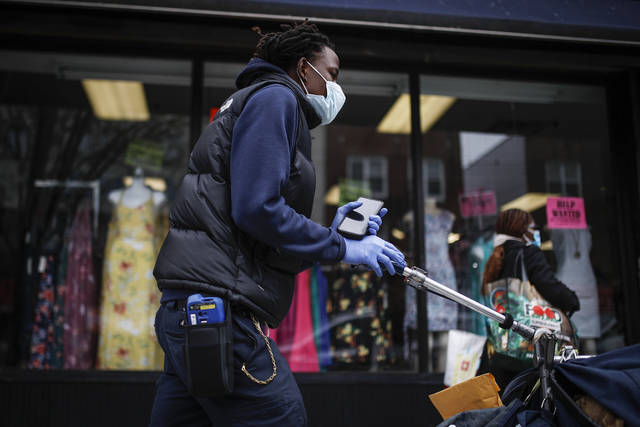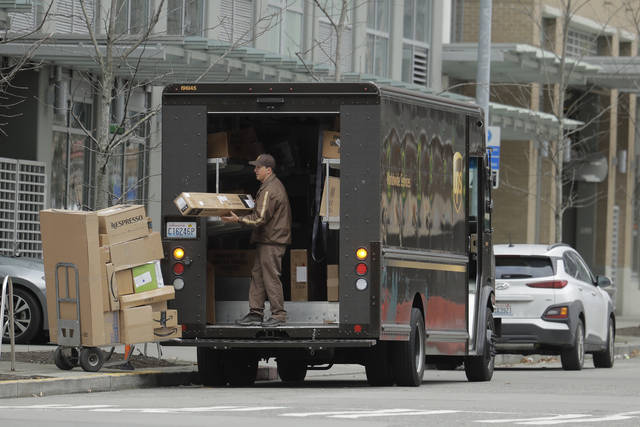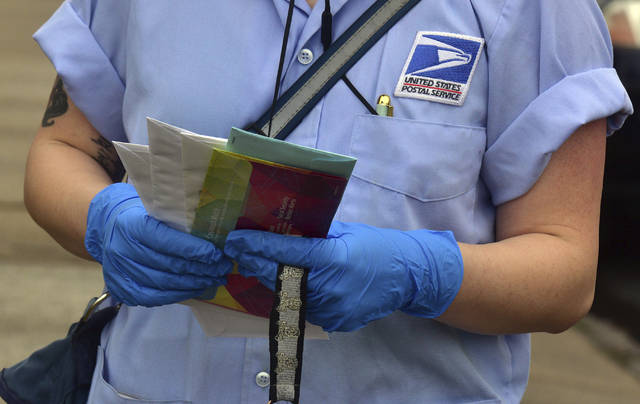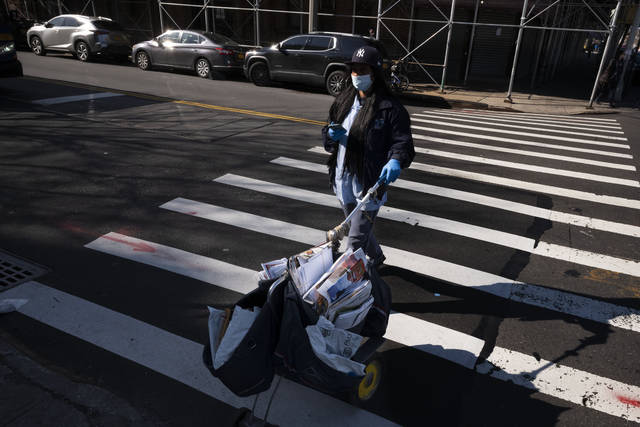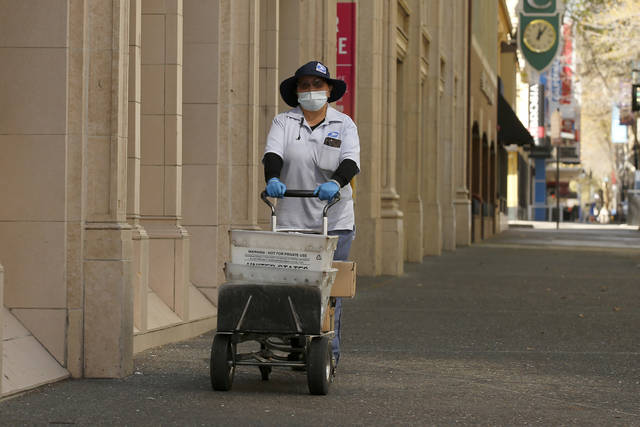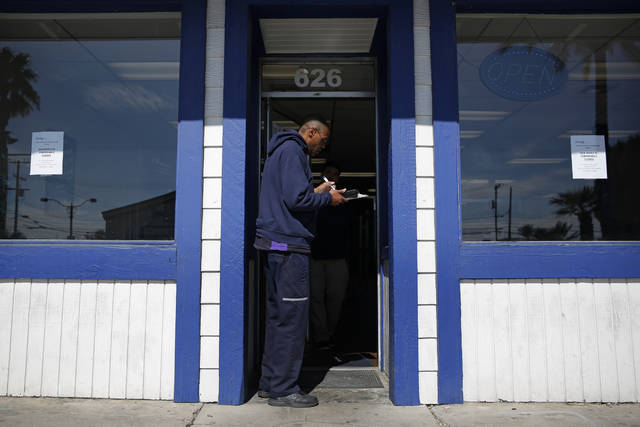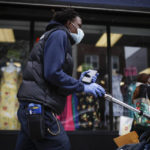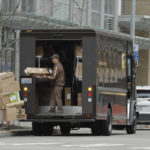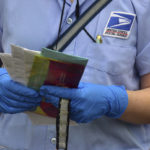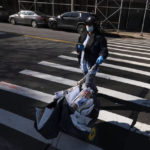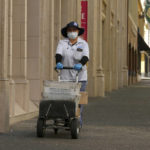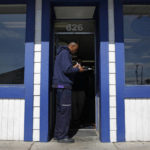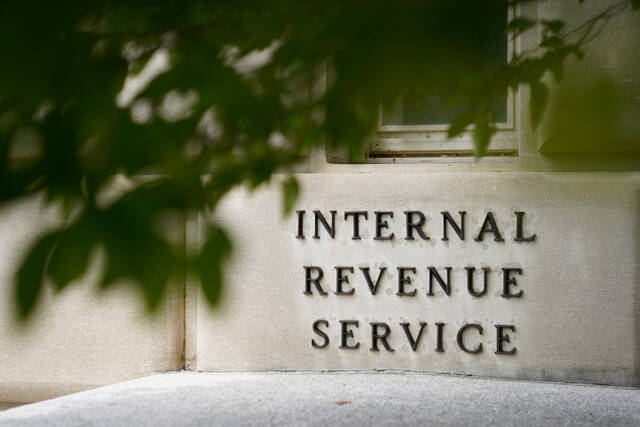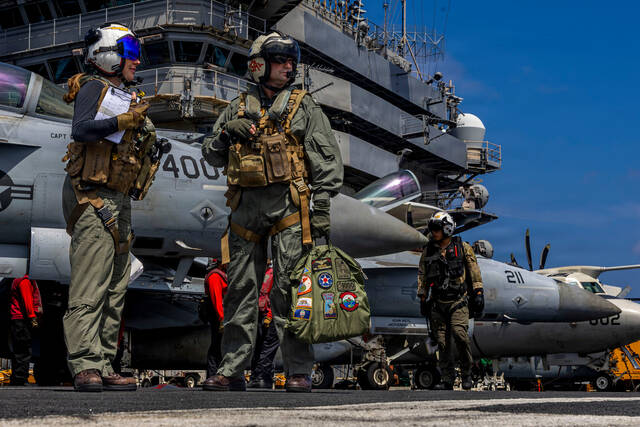Kathy Payne has a routine: She wipes down the trays holding the mail she’s about to deliver. She puts on gloves to sort the letters and packages, then a new pair when she climbs into her vehicle.
As she fills people’s mailboxes throughout the day, she constantly cleans her steering wheel, fearing the coronavirus.
“We don’t know where they come from, who’s touched them,” she said of the envelopes. “It’s scary not knowing.”
Payne, a postal carrier for 30 years in Rockwood, Tennessee, is among those making deliveries who are trying to protect themselves from the virus, whether it’s no longer requiring signatures for packages or knocking on doors instead of ringing the doorbell.
Health experts say the risks are very low that COVID-19 will remain on envelopes or packages and infect anyone who handles them. They say, however, to avoid touching your face and wash your hands after handling any deliveries, which have become more important as Americans stay home to reduce the spread of the virus.
Payne, who delivers to more than 800 mailboxes a day in a town about 70 miles north of Chattanooga, said her post office constantly wipes down door handles and has provided plenty of gloves.
But “our biggest thing is the post office can’t get hand sanitizer, can’t get any supplies,” she said.
That sent one co-worker to a Walmart to stock up on 12 canisters of sanitizing wipes, Payne said. Without the Postal Service providing much disinfectant, Payne brings a can of Lysol to spray down the surfaces she touches.
Tests led by U.S. government scientists found that the virus can live on cardboard for up to a day, but that was in a controlled lab situation and does not reflect what might happen in daily life or with other materials, such as envelopes, said Julie Fischer, a microbiologist at Georgetown University’s global health security research center.
In the real world, packages and envelopes face varying weather conditions that affect how long the virus can live on them, she said. Even if the virus was on the mail, it would need to make its way to your mouth or nose to cause infection.
“As long as you wash your hands thoroughly and regularly after opening it and don’t touch your nose and mouth … that mail itself, that package, poses very little risk,” Fischer said.
But “postal workers are at risk because they are coming into contact with each other and the public,” she said. “The biggest risk is still exposure to an infected person.”
For most people, the coronavirus causes mild or moderate symptoms, such as fever and cough that clear up in two to three weeks. For some, especially older adults and people with existing health problems, it can cause more severe illness, including pneumonia and death.
The U.S. Postal Service is keeping post offices open but ensuring customers stay at least 6 feet apart. It also is requiring appointments for passport applications. The agency said it is following guidance from public health experts, although there is no indication that COVID-19 is being spread through the mail.
Shipping giants FedEx and United Parcel Service have stopped requiring signatures for packages.
The National Association of Letter Carriers has advised its union members to avoid ringing doorbells and instead knock on doors — avoiding areas likely to have been touched by someone else — and to practice social distancing.
In a letter to its members Wednesday, union president Frederic Rolando said 51 postal employees had tested positive for COVID-19 so far and that nearly 2,000 were in quarantine. One postal carrier, a 50-year-old from New York, died of complications related to the virus, though it was not clear if he was infected on the job.
In hard-hit Italy, the postal service has scaled back services that require face-to-face interaction with customers but continues to deliver mail during the country’s lockdown. Many post offices have reduced their opening hours or shut down temporarily to reduce the risk of the virus spreading among customers and staff.
In the U.S., a Phoenix resident was so concerned about her mail carrier that she taped a bag with plastic gloves and a face mask to her mailbox, with a note saying, “Thank you for working!”
B. Jefferson Bolender said she saw him wearing a hat, sunglasses and a large bandanna over his face as well as work gloves.
“And I was thinking he’s worried about having some protection, and then when I saw the work gloves, I thought, ‘Oh no,’” Bolender said.


